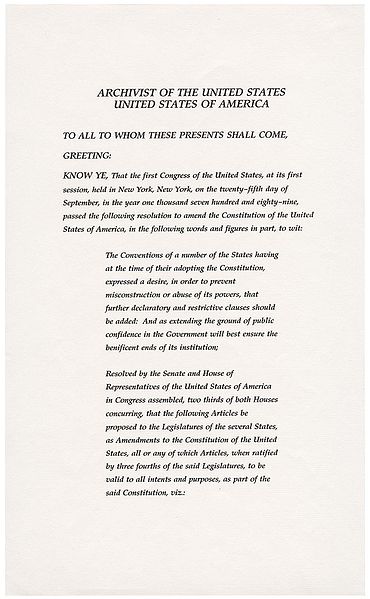Twenty-seventh Amendment to the United States Constitution
The Twenty-seventh Amendment to the United States Constitution states that any law that increases or decreases the salary of members of Congress may take effect only after the next election of the House of Representatives has occurred. It is the most recently adopted amendment but was one of the first proposed.
Image: 27th Amendment Pg 1of 3 AC
Image: 27th Amendment Pg 2of 3 AC
Image: 27th Amendment Pg 3of 3 AC
United States House of Representatives
The United States House of Representatives is the lower chamber of the United States Congress, with the Senate being the upper chamber. Together, they comprise the national bicameral legislature of the United States. The House is charged with the passage of federal legislation, known as bills; those that are also passed by the Senate are sent to the president for signature or veto. The House's exclusive powers include initiating all revenue bills, impeaching federal officers, and electing the president if no candidate receives a majority of votes in the Electoral College.
United States House of Representatives
Republican speaker of the House Thomas Brackett Reed (1895–1899)
U.S. congressional districts for the 115th Congress






